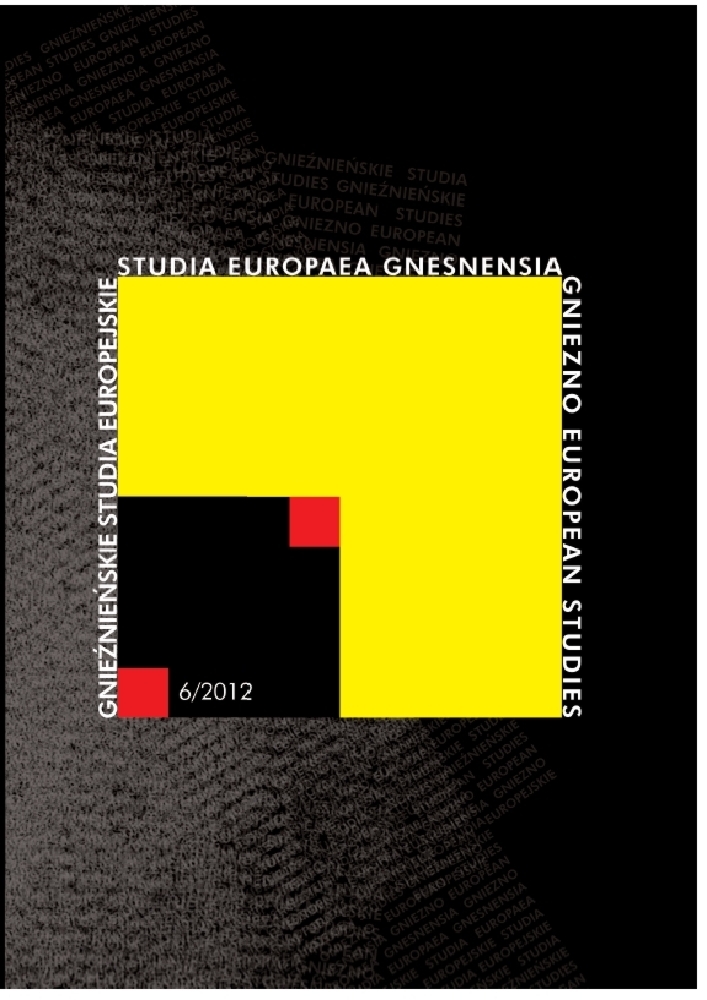Abstract
The aim of the article is to analyse Polish stance on the H1N1 of 2009 and 2010, which was completely inconsistent with WHO’s official guidelines. Faced with a possible bioterrorist threat it is inexpedient to question the credibility of organisations such as WHO. Yet on the other hand, WHO should also develop better understanding and relationships with the governments but most of all strive for the best possible transparency of its actions.
Literaturhinweise
Ashraf H., The Phillips Report on BSE and vCJD, The Lancet 356, 2000, p. 1579–1580. DOI: https://doi.org/10.1016/S0140-6736(00)03136-6
Cassoobhoy M., S.F. Wetterhall, D.F. Collins, P.T. Cantey, Development of an Interactive Bioterrorism and Emerging Infections Curriculum for Medical Students and Internal Medicine Residents, Public Health Report, 120, 2005, p. 60. DOI: https://doi.org/10.1177/00333549051200S112
Cohen D., Conflicts of Interest, WHO and the pandemic flu “conspiracies”, BMC (British Medical Association) 2010; 340:c2912. DOI: https://doi.org/10.1136/bmj.c2912
Cohen H.W., R.M. Gould, V.W. Sidel, Bioterrorism “Preparedness”: Dual Use or Poor Excuse? Public Health Reports, 9–10.2000 (vol. I 15).
Dorosh S., Panic in Ukraine over swine flu BBC Ukrainian Service, Kiev, 3 November 2009, http://news.bbc.co.uk/2/hi/8338835.stm. Accessed April 20, 2011.
Engdahl W., WHO ‘Swine Flu Pope’ under investigation for gross conflict of interest, December 8, 2009. http://www.oilgeopolitics.net/Swine_Flu/Flu_Pope/flu_pope.html.
Flynn P., The handling of the H1N1 pandemic: more transparency needed, Social Health and Family Aff airs Committee Report, 04.06.2010, in paragraph A, draft resolution 2. http://assembly.coe.int/CommitteeDocs/2010/20100604_H1N1pandemic_e.pdf.
Fox M., Swine flu death rate similar to seasonal flu: expert, Health and Science Editor, Reuters Washington 16.09.2009. http://www.reuters.com/article/2009/09/16/us-flu-deathsidUSTRE58E6NZ20090916.
Gera V., Poland Refuses Swine Flu Vaccine, Drug Discovery & Development, January 18, 2010.
Johnson Avery E., , S. Kim, Anticipating or Precipitating Crisis? Health Agencies May Not Be Heeding Best Practice Advice in Avian Flu Press Releases, Journal of Public Relations Research 21(2), 2009, p. 187–197. DOI: https://doi.org/10.1080/10627260802557449
Kahn L.H., Who’s in Charge? Leadership during Epidemics, Bioterror Attacks, and other Public Health Crises, Santa Barbara, Denver, Oxford 2009, p. 90–91. DOI: https://doi.org/10.5040/9798216035480
Olik M., Poland and the H1N1 Flu: Calm and Unvaccinated, A/H1N1 in Poland, Global Research, November 15, 2009. http://www.globalresearch.ca/.
Orton S., K. Umble, M.V. Davis, J.E. Porter, Disasters and Bioterrorism: does management training develop readiness?, Public Health Reports 6, Nov.–Dec. 2002, p. 596–598.
PACE Health Committee denounces ‘unjustified scare’ of Swine Flu, waste of public money, Press release 455(2010) Strasbourg, June 04, 2010.
Poland praised for anti-swine flu strategy, The news.pl from March 31, 2010. http://www.beyondconformity.co.nz_literature_85235Influenza_Poland_no_vaccine.
Polish economics, The Washington Times, April 23, 2009.
Ramesh R., Report condemns swine flu experts’ ties to big pharma, The Guardian, June 04, 2010.
Sciolino E., Anthrax vaccination program is failing, Pentagon admits, New York Times, July 13, 2000;
Watson R., Council of Europe launches investigation into H1N1 pandemic BMJ (British Medical Association) 2010; 340:c641. DOI: https://doi.org/10.1136/bmj.c641
Weekly epidemiological record Relevé épidémiologique hebdomadaire, 4 december 2009, 84th year / 4 décembre 2009, 84e année. 49, 2009, 84, p. 505–516.
WHO rejects Council of Europe H1N1 accusations, 26.01.2011; http://www.euronews.net.
WHO use of advisory bodies in responding to the influenza pandemic, Pandemic (H1N1) 2009 briefing note 19, 03.12.2009; http://www.who.int/csr/disease/swineflu/notes/briefing_20091203/en/index.html.
Lizenz
Copyright © 2012 by IKE and PTPN
